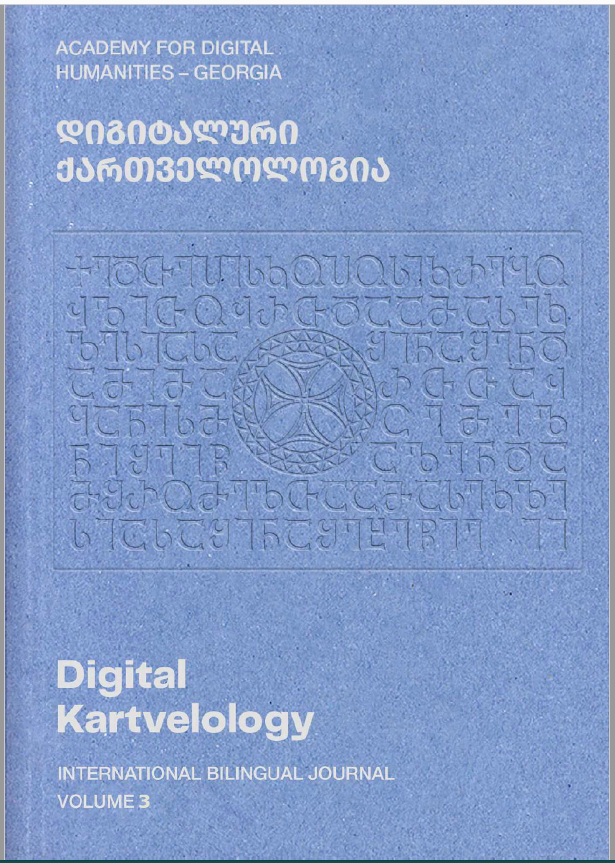Paul’s 1st Epistle to the Corinthians ch. 13. - A Comparison of Georgian and Abkhaz Translations (Taking into account the Greek Original)
Main Article Content
Abstract
The Bible is universally recognised to be the most translated book in the world. The whole Bible (Old & New Testaments) is, unsurprisingly, available in Georgian, which has a centuries-old literary tradition. In Abkhaz, however, only one version of the whole New Testament (NT) currently exists, and that is the privately published translation (from Russian) by the late writer Mushni Lasuria (2004). I spent several months a few years ago on behalf of The Institute for Bible Translation (once based in Stockholm but now in Moscow) going through Lasuria’s translation of the four Gospels (together with a different translation, also done from Russian, by Zaira Khiba) and suggesting changes to align texts with the Greek original – Khiba’s version of the Gospels is available online. I therefore had the idea that it might prove to be an interesting and appealing exercise to take another extremely well-known part of the NT, namely Paul’s discourse on the theme of love, and examine how this has been treated by Lasuria and Georgian translators (in both Old and Modern Georgian), contrasting the results with the ultimate Greek source. Given that the 13th chapter of Paul’s First Epistle to the Corinthians is (one might say) universally regarded as a description of love, it might come as a surprise that not all English translations actually include this word, preferring charity instead. We shall touch on the reason why this choice caused such a furious controversy in 16th-century England.




